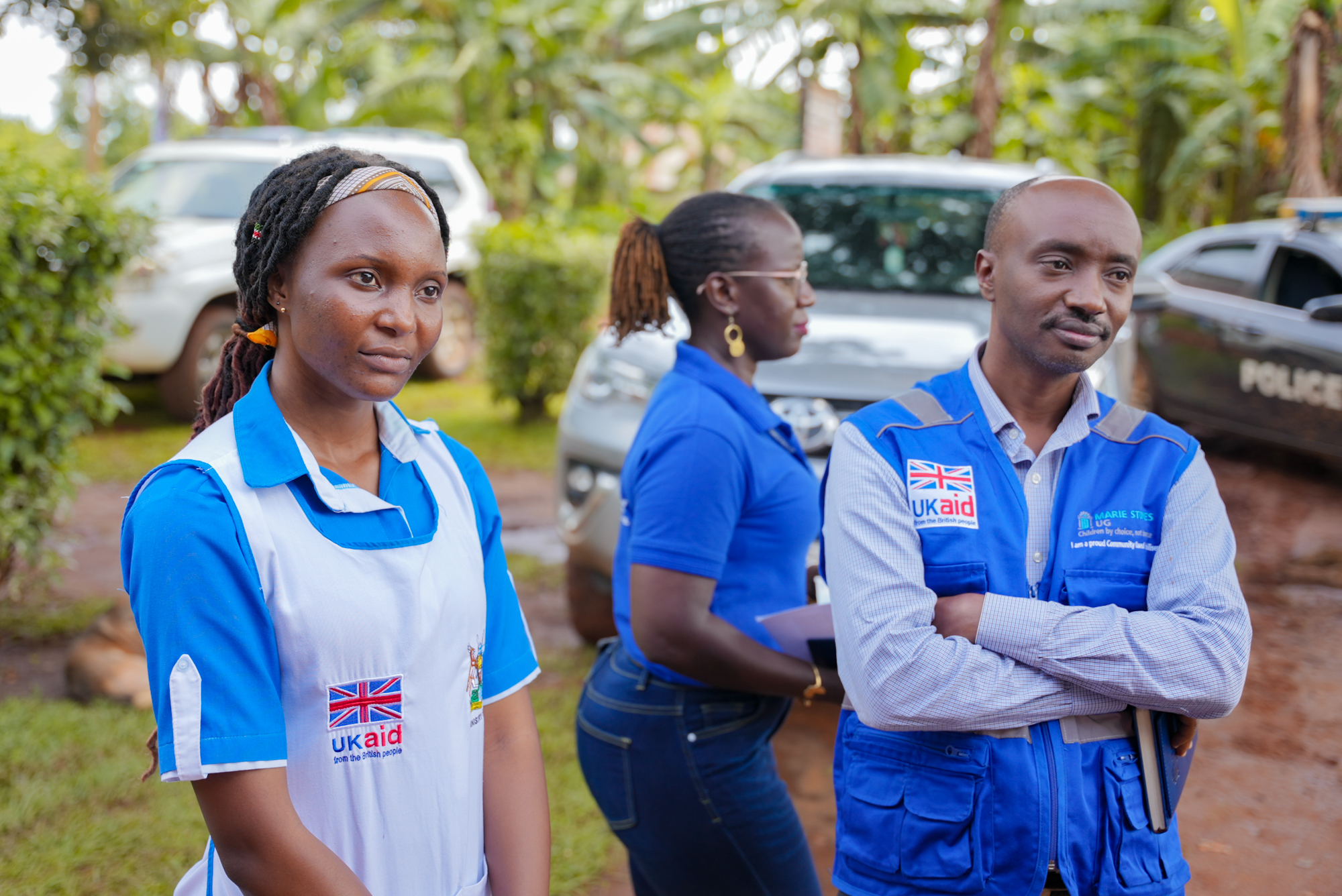One year on from President Trump’s re-imposition of the Mexico City Policy, also called the Global Gag Rule, the loss of USAID funding has left Marie Stopes International with a funding gap of nearly US$80m (£60m) that could have a devastating impact on millions of the world’s poorest for years to come.
Unless the organisation can close this funding gap, it estimates that more than 2 million women will no longer have access to contraception services from a trained Marie Stopes International provider, leading to an extra:
- 2.5 million unintended pregnancies
- 870,000 unsafe abortions
- 6,900 avoidable maternal deaths
- £107m increase in direct healthcare costs
First imposed by President Reagan in 1984, the Global Gag Rule withholds USAID funding from any non US organisation that offers abortion services — even just information or referrals — with their own funds. On 23rd January 2017, the policy was re-enacted by President Trump as one of his first acts in office. At that time, USAID funding equated to 17% of Marie Stopes International’s donor income. The loss of funding has been most keenly felt in the organisation’s work with poor and marginalised communities, who often have no other way of accessing contraception.
Thanks to the generous support of other donor governments and foundations, Marie Stopes International has been able to secure replacement funding to keep most services running in the short term. However, from the middle of 2018 many of its programmes are facing a cliff edge, with an approximate $80m (£60m) funding gap in the remaining years of the current Trump administration.
Marjorie Newman-Williams, Marie Stopes International’s Vice-President and Director of External Affairs said:
“The American public needs to know that this policy – supposedly aimed at reducing abortion – is harmful and self-defeating, seriously reducing the impact of US development assistance for family planning in some of the world’s poorest countries.
“Evidence shows that by blocking funding to the world’s largest NGO providers of modern contraception, unintended pregnancies and abortions go up. As a result, women and girls are less likely to complete their education, have a career, or pursue their dreams for the future. This will damage not just women’s health and their opportunities for the future, but the longer-term economic prospects and stability of the world’s poorest countries.
“We have been deeply moved by the support and donations we have received over the past year and we are doing everything in our power to mitigate the impact of this policy. However, unless we can fill the $80m gap created by the Global Gag Rule, it will deprive millions of women of the contraception they need to prevent an unintended pregnancy, and it is the world’s poorest women and girls who will bear the brunt.”
The countries most directly affected so far by the withdrawal of US government family planning funding to Marie Stopes International include:
- Madagascar: Where our voucher programme, delivering sexual and reproductive health services to women and adolescents living in poverty has already been forced to close and a further 22 outreach teams and 150 public sector franchises are at risk.
- Uganda: Where five of our 35 outreach teams have already closed and another 12, covering nearly half the country’s most hard-to-reach populations, are at risk. Currently these teams visit all of the country’s 117 districts, but if no new funding is found by June 2018 this will be slashed to just 47 districts (40%).
- Zimbabwe: Where we have already had to halve the number of outreach sites we visit from 1,200 to 600, and six outreach teams serving remote, marginalised communities are at risk, leaving women with no access to vital services.
Global progress hanging in the balance
In 2012, the global community set the goal of expanding family planning services to 120 million more women by 2020, of which Marie Stopes International committed to reaching 10 per cent (12 million). Six years on, more women and girls than ever before are able to access contraceptives and family planning services.
However, the Global Gag Rule has severely depleted the funding Marie Stopes International needs to fulfil its promise. While more people than ever are using a method of contraception provided by Marie Stopes International – up 6% in 2017 to 26.9 million – progress has slowed considerably from the 20% increase the previous year, and unless the gap is bridged could reverse years of global progress.
Despite a challenging year, Marie Stopes International delivered significant impact. In 2017, our work worldwide prevented:
- 8.2 million unintended pregnancies
- 5.4 million unsafe abortions
- 23,900 maternal deaths
- £337m in additional healthcare costs
Annie’s story
Annie Ramasy travels for up to six hours every day to provide family planning services to women in rural, isolated communities in Madagascar who would otherwise have no access to modern methods of contraception.
Following the re-imposition of the Global Gag Rule by the Trump administration these life-changing and life-saving services are now at risk. A voucher programme that has delivered sexual and reproductive healthcare to thousands of the country’s poorest women has already been forced to close, and Annie’s outreach team is one of 22 at risk, leaving the future uncertain for the many women who rely on them.
Annie recalls:
“When I heard that USAID had withdrawn their funding, I asked my clients how they would feel if we couldn’t come anymore. One of them screamed: ‘De ahoana amin’izany?’ So what now?”
Another client, Lailana, 25, who first started using contraception five years ago, after the birth of her second child said:
“We made the decision not to have any more children to give our family the best possible future. Contraception gives me the possibility to have control over this decision. Without the outreach team, I would be lost.”
Being the only family planning provider the women know, Annie knows the important role she plays in the community.
“I am not only a nurse to them, I am a confidant. If I were not able to reach them, I would feel like I had abandoned and betrayed them.
“Contraception does not only prevent pregnancies, it gives you time to define what you want to do with your life. In a country like Madagascar, having a large family when you cannot afford it prevents thousands of people having the chance to get a better life. If you cannot move your family forward, how can you move your country forward?”
– Ends –
Notes to Editors
For interviews and further information please contact:
Email: [email protected]
Tel: +44 (0) 207 034 2377/+44 (0) 203 219 8245 or +44 (0) 7769 166 516 (out of hours)








